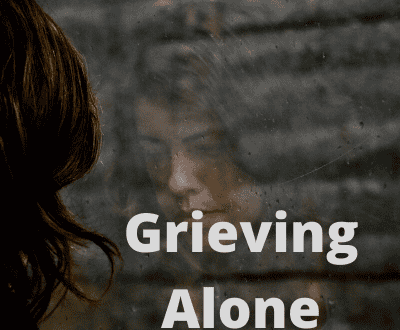Grieving While Practicing Social Distancing During COVID-19
Tips for Grieving the Death of a Loved One While Practicing Social & Physical Distancing during Coronavirus.
Grieving after the death of a loved one is a natural process that affects us in many different ways and is, in itself, very painful. Due to the recent “Stay at Home” orders by the Governor of California and nationwide due to the Coronavirus, our grief can be experienced more intensely and difficult. We know that we are all trying to balance work, caring for our family members or understanding how we can survive just our basic needs while caring for ourselves. Know that you are not alone.
It is possible that in the next few weeks you may find yourself missing your loved one who died much more. You may feel relieved that your loved one is not here having to deal with the Coronavirus outbreak. Or you might be angry that they’re not here to help. It all depends on how you react in this situation. I want to remind you that the thoughts and/or feelings you are experiencing now are completely normal; natural grief reactions include and are not limited to: sadness, anger, guilt, fear, uncertainty and much more; but we understand that these moments with the Coronavirus make these emotions and experiences more difficult and complicated.
Here are some things you can do at home to deal with the emotions related to your grief in times of quarantine and isolation:
- It is very important that you identify and name all the feelings that come to you. This seems like a very easy thing to do, but on the contrary, many people avoid it. Let the sadness, anger, anxiety, uncertainty, or any feelings/thoughts flow. Let your heart and not your head determine your feelings. Honoring that uncomfortable experience will bring you comfort, or relief.
- Find time for personal care: Of course, we are in isolation, but we need to remember that much of our personal time was part of the daily routines we had (work, going to the store, a social group, etc). That time is no longer available. Now, we have to make ourselves create that space for certain activities that will ground us: for example – a warm bath, a walk, meditation, exercise, prayer, or any other activity that you enjoy and brings comfort.
- Avoid isolating yourself in isolation – It’s true that we are currently practicing physical distance, but it is very important to maintain those connections with our families and friends; it can be a simple text message, a phone call, or in other ways using social media.
- Remember the memories and time you spent with your loved one: The grief rituals you are used to doing in memory of the person who died, you may not be able to do these days (going to the cemetery, church, OH’s Run/Walk for Hope). To maintain that connection with your person, you can create new rituals at home-like lighting a candle, seeing the photo albums, writing a letter to the person. Something that brings you comfort and/or helps maintain the connection to your loved one.
- Be gentle and patient: Grieving is already a difficult process and with the Coronavirus it will make your grief feel more intense in the coming weeks/months. Be sensitive and patient with yourself.
I want to remind you that our phone lines are available Monday through Friday from 9-5pm in case you have questions about the groups or need resources. You can reach us at (310) 231-3196 and for more information visit our website at www.ourhouse-grief.org
 Brenda Hernandez, MA, MFT
Brenda Hernandez, MA, MFT
Brenda Hernandez is a Marriage and Family Therapist who serves as the first point of contact for OUR HOUSE callers seeking grief support. In the last 10 years, Brenda has provided a wide array of services to at-risk youth, families, and adults including academic, individual, and group-based treatments designed to strengthen their social/emotional and behavioral needs. Brenda is an advocate for underserved individuals in the Latino community and is passionate about empowering grievers with the knowledge, resources and understanding to better help themselves. She leads grief support groups in Spanish and provides translation for callers and grievers as needed. Brenda received her Master’s Degree in Marriage and Family Therapy with an emphasis in Child Studies from Antioch University: Los Angeles.

